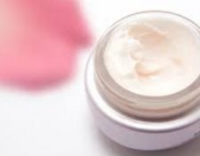Nestlé may be essentially known as one of the biggest and powerful food groups in the world but it's also been developing its health and beauty business for years.
Its foray into skincare in particular reveals serious interest and financial investment in the cosmetics industry, including botox and dermal fillers, a sector that has been booming for years and that is still growing considerably each year.
The cosmetic treatments and surgery trend is currently thriving, with a global market growth of 8,6% in 2016, rising numbers of clients, and a wide-spread access to botox and dermal fillers courses for professionals looking to invest and specialize in this promising sector.
The arrival of German-American businessman Ulf Mark Schneider at the head of Nestlé on the 1st of January 2017 speaks for itself. The new 51 years-old CEO is also the former CEO of German medical group Fresenius: in just over thirteen years, it was revealed that Fresenius' net revenues were multiplied by twelve. It's a process that didn't go unnoticed and can easily justify his recent appointment at the head of the multinational, even if it was initially met with a lot of surprise in the industry when it was first announced back in July 2016.
This is one big change that could be a preamble to another series of medical and cosmetic acquisitions in the very near future and jumping on the botox and dermal fillers bandwagon is one of Nestlé's most noticeable moves in recent years. In 2015 Nestlé started a partnership deal with French drugmaker Ipsen SA who notably produces Dysport, a well-known alternative to Botox.
That was only a year after it became number 2 worldwide for Botox in May 2014, after buying skincare rights off Valeant Pharmaceuticals for an impressive $1.4 billion and thus officially creating the Nestlé Skin Health department. The purchase included popular cosmetic treatments like Restylane, Perlane and Emervel.
Nestlé Skin Health is directed by Paul Navarre, a successful French businessman that came into the spotlight at the end of last year, succeeding to Humberto Antunes as chief executive. A former key member of Allergan, one of the biggest players in pharmaceuticals, Navarre brings with fellow newcomer Mark Schneider, another wealth of experience to the development of the health and skin care divisions. His most recent and significant former role, was indeed global president of Allergan's international business outside of the United States.
Without a doubt, by extending its activities further into the health and skin care divisions, Nestlé can hope for a 5 to 6% growth on a short term basis. the shifting focus from food to health can be explained by the fact that the food business had been missing growth targets for the past few years, according to Fortune.com. It's still early days for Schneider but the health and skin care business is quickly becoming the most profitable sector.





